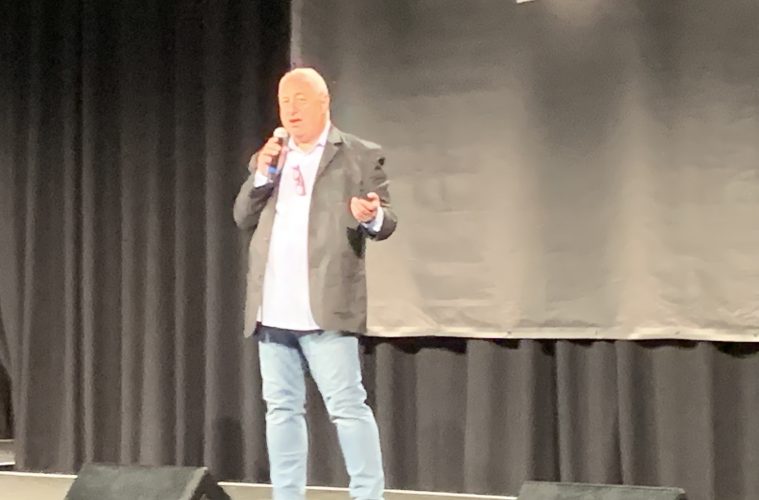Although predicting the future can be next to impossible as recent history as shown, certified public accountant and MI aficionado Alan Friedman took out his crystal ball on July 16 during his Summer NAMM speech titled: “The Next Decade: The Biggest Trends in Music Retail.”
“Admitting your wrong is not a sign of weakness,” said Friedman. “It is a sign of strength. With that being said, I don’t think I am wrong about any of these next 10 predictions. But I could be.”
Friedman’s 10-year prediction for the 10 biggest trends in music products retailing are:
- Yup, online sales will continue to grow … along with killer social media market campaigns. “Next year, online sales are expected to reach $5.4 trillion in the United States,” said Friedman. “Do I think brick and mortar is dead? Hell no. I think online and brick and mortar are complementary. You cannot have one without the other.”
- The successful music retailers of the future will have adopted an omnichannel approach to their retailing model. “Physical stores will have self-help access to low-priced accessories plus one-on-one customer engagement for higher-end products,” he said. “Online store activities will use a vibrant e-commerce website, virtual sales calls, video conferencing, artificial intelligence and launch social media campaigns specifically designed to connect with their target customer.”
- The updated brick-and-mortar retailing model will strive to be an integral part of the community by providing all of the music products and services their community yearns for. “Services like music lessons, instrument rentals, repairs and tunings, home and school deliveries, product education, instrument storage and studio recording services will become a must,” stated Friedman.
- Band and orchestra dealers will remain strong as long as there are well-funded school music programs and serious attention to health safety. “The indestructible segment of music retailing has always been school music dealers until COVID-19 showed up,” Friedman stressed. “Rest assured, school music will once again return to its well-known profitability as long as precautions are taken to keep students and faculty operating in a safe and healthy environment.”
- Online music lessons are neither a last resort, nor a passing fad. They are here and now. “Online lessons may have recently grown out of sheer necessity, but the technology exists to teach music in real time, with zero latency,” relayed Friedman. “Online lessons will surely become the preferred practice for many students and teachers alike.”
- There will be a continued huge increase in professional home studios for music recording, podcasts, movie editing and other music production. “DAWs (digital audio workstations) will keep getting more powerful,” Friedman said. “Plug-ins are rivaling expensive audio processing effects and virtual instruments do everything and more.”
- There will be a continued migration away from buying big-expense acoustic pianos to electronic weighted keyboards. “Given the cost, capability, sound quality, portability, software upgradeability and space-saving ability of electronic keyboards, is there really any wonder why acoustic pianos have been on a steady decline?” Friedman asked.
- As technology grows at exponential paces, so does the truly innovative products. This is decreasing the demand for once-coveted objects of sonic analog beauty. “Sampling rates are getting so good, you cannot tell the difference. I have studio engineers telling me you can’t hear the difference,” noted Friedman. “What does that mean for these things of beauty that I love? Amps will not go away entirely, but technology is unbelievable and will put a dent into ‘things of beauty.’”
- As Baby Boomers die off, so do our guitar heroes … and our financially reckless buying of pricey instruments driven by brand brainwashing. “The reason why we bought all of those beautiful vintage guitars was because of our guitar heroes, their music and ‘psychological imprinting,’” stated Friedman. He offered examples of Eric Clapton, Paul McCartney and Jimmy Page as examples of “older” guitar heroes.
- Consolidations and survival of the fittest. “There will consolidations among both manufacturers and retailers and a continued trend for manufacturers to sell direct to consumers,” Friedman revealed. He also noted the following future trends: a growing shortage of the music retailing pool; companies that embrace diversity will win; and a continued disruption in the supply chain equals greater levels of inventory equals only companies who can afford it will stock it.”
For more news from the Music & Sound Retailer, click here.


